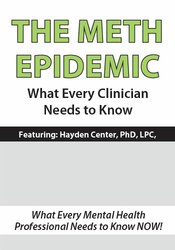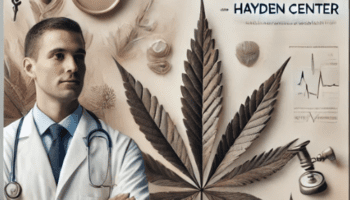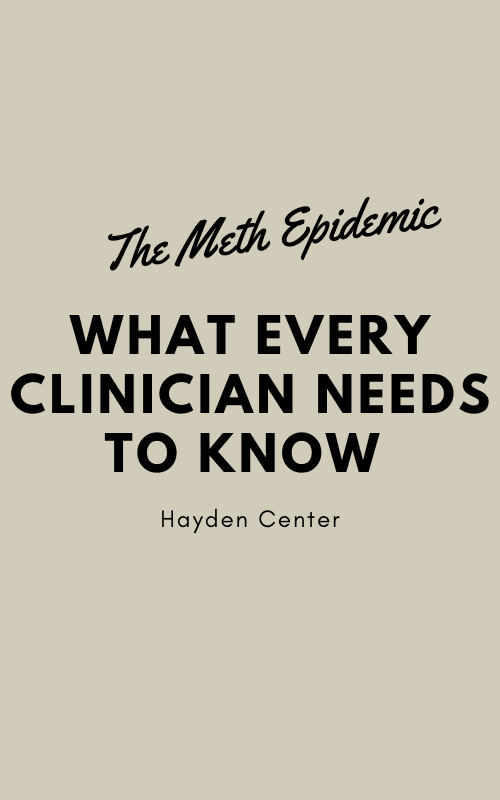The Meth Epidemic -What Every Clinician Needs to Know – Hayden Center
The Meth Epidemic -What Every Clinician Needs to Know – Hayden Center has the same quality as the author’s salapage.
Overview
Salepage check: The Meth Epidemic -What Every Clinician Needs to Know
Author: Hayden Center
- Faculty:
- Hayden Center
- Duration:
- 2 Hours 48 Minutes
- Format:
- Audio and Video
- Copyright:
- Jul 26, 2019
Description
Dangerously addictive, meth is a drug that ends lives. It’s literally a substance so volatile it puts holes in the human brain.
But it harms those far beyond the nearly half-million Americans that use meth each week. Families are neglected, children are exposed, and the prison system is overrun. It’s everyone’s problem.
As the tentacles of this sinister epidemic spread into our communities, you need to be prepared to address issues related to methamphetamine and other stimulant drug use in your clients’ who use and in your clients’ who have a drug user in their lives!
Whether you’re an addictions professional, social worker, counselor, psychologist or nurse, this recording will give you the critical information you need to:
- Understand the impact of co-occurring disorders with meth use on treatment outcomes
- Work more effectively with clients that struggle with a dependency on meth
- Be prepared for future trends and next steps in dealing with the meth epidemic
Make sure that you can be part of the solution to one of the scariest epidemics facing our communities today!
Handouts
| Manual – The Meth Epidemic (3.7 MB) | 56 Pages | Available after Purchase |
Outline
OVERVIEW OF METHAMPHETAMINE
- Prevalence of meth use
- How meth is produced
- Typical cycle of dependence
THE IMPACT OF METHAMPHETAMINE USE DISORDER ON THE BRAIN
- Brain centers – the relationship between brain centers
- The pleasure factor and the addicted brain
- Differences from other substance use disorders
- How chronic meth use changes the brain
PSYCHOTHERAPEUTIC APPROACHES TO TREAT METHAMPHETAMINE USE DISORDER
- Signs of meth use disorder and questions to ask
- CBT – recent studies
- Motivational Interviewing and Motivational Enhancement Therapy
- Contingency management
- The Matrix Model
- 12-step counseling
- Family counseling
- Adjunct approaches – including smart phone daily prompts
- Assessing and modifying treatment to ensure effectiveness
- Research limitations and risks of psychotherapeutic approaches
IDENTIFY AND TREAT CO-OCCURRING DISORDERS WHEN METH IS INVOLVED
- The impact of co-occurring disorders on treatment outcomes
- Primary disorders vs. substance-induced co-occurring disorders
- Screening procedures and tools
- Questions to ask
- Recording results
- Safety issues
- Trauma history
- Validity in co-occurring treatment research
- Risks associated with co-occurring treatment options
MEDICATION ASSISTED TREATMENT (MAT)
- Medications that are being used in current trials
- Limitations of research and potential treatment risks
ROUTES TO PREVENTION: SETTING THE STAGE FOR FUTURE SUCCESS
- Community-level approaches to prevention of meth use
- Prevention approaches at the individual level
- Relapse techniques
Faculty
Hayden Center, PHD, LPC Related seminars and products: 4
Hayden Center, PhD, LPC, has been treating individuals and families who suffer from substance abuse disorders, including opioid use disorder, for over 25 years in a private practice setting. Dr. Center most recently served as the evaluator for the Center for Substance Abuse Prevention’s (CSAP) Southeast Center for the Application of Prevention Technologies (SECAPT) and the Border Center for the Application of Prevention Technologies (BCAPT).
Dr. Center served as a consultant to the Alabama Governor’s Office of Drug Abuse Policy for 10 years and has worked with numerous state and local agencies in the state of Alabama.
He has provided over 200 trainings on the topics of science-based prevention, evaluation, risk and protective factors, co-occurring disorders, and other mental health and substance abuse issues. His current interests are providing training and technical assistance to increase the usage and effectiveness of evidence-based treatments and approaches.
In addition to his private practice, Dr. Center has taught in university settings for over 28 years. He teaches graduate-level courses in Theories of Psychotherapy, Advanced Objective Testing, Psychopharmacology, and undergraduate courses in psychology at Auburn University in Montgomery, Alabama. He earned his PhD in counselor education and Master of Science in psychology at Auburn University in Montgomery, Alabama.
Speaker Disclosures:
Financial: Hayden Center maintains a private practice. He receives a speaking honorarium from PESI, Inc.
Non-financial: Hayden Center has no relevant non-financial relationship to disclose.
Curriculum
FAQs
Requirements
- Background in clinical practice, psychology, or healthcare.
- Basic understanding of substance use disorders.
- Access to a device capable of playing digital course materials (PC, tablet, or smartphone).
- Willingness to engage with self-paced learning and case-based examples.
Features
- Comprehensive overview of methamphetamine addiction, trends, and impacts.
- Clinical strategies to identify and manage methamphetamine use disorder.
- Expert insights from Hayden Center, a leading voice in substance abuse education.
- Practical case studies and scenarios for real-world application.
- Digital, on-demand access for flexible learning.
Target audiences
- Clinicians specializing in addiction treatment and recovery.
- Psychologists, psychiatrists, and mental health professionals.
- Medical practitioners in emergency or primary care.
- Social workers and case managers handling substance use cases.
- Students and educators in healthcare or psychology fields.



